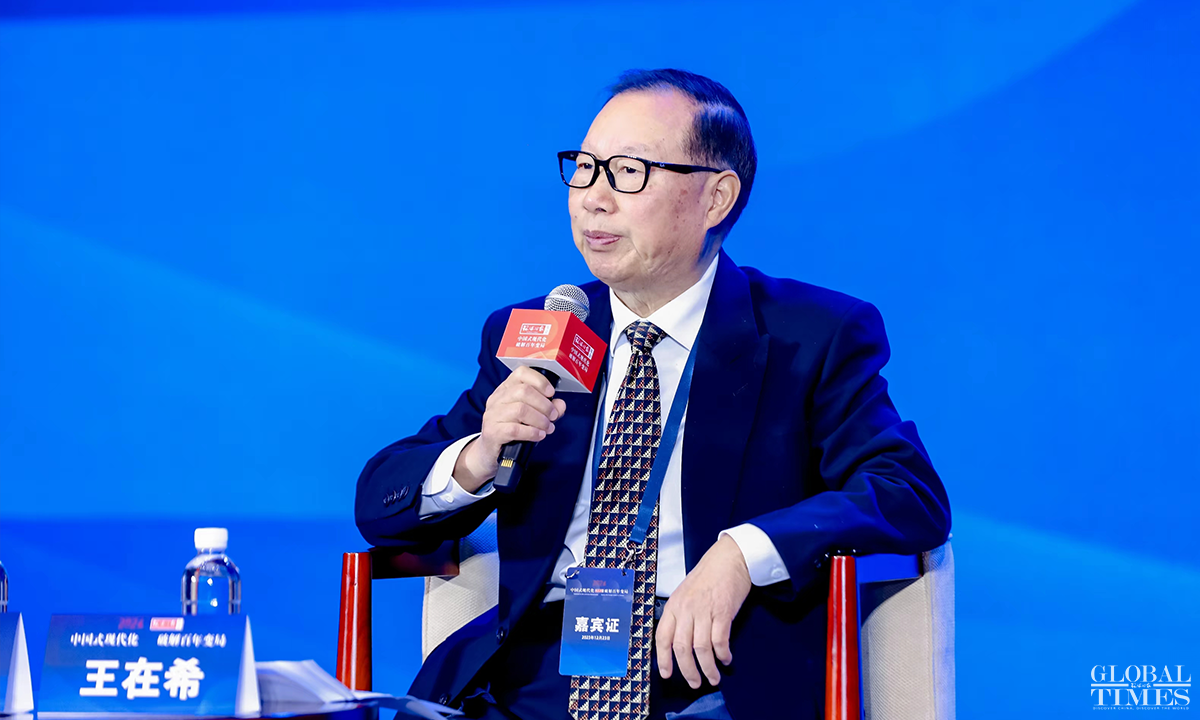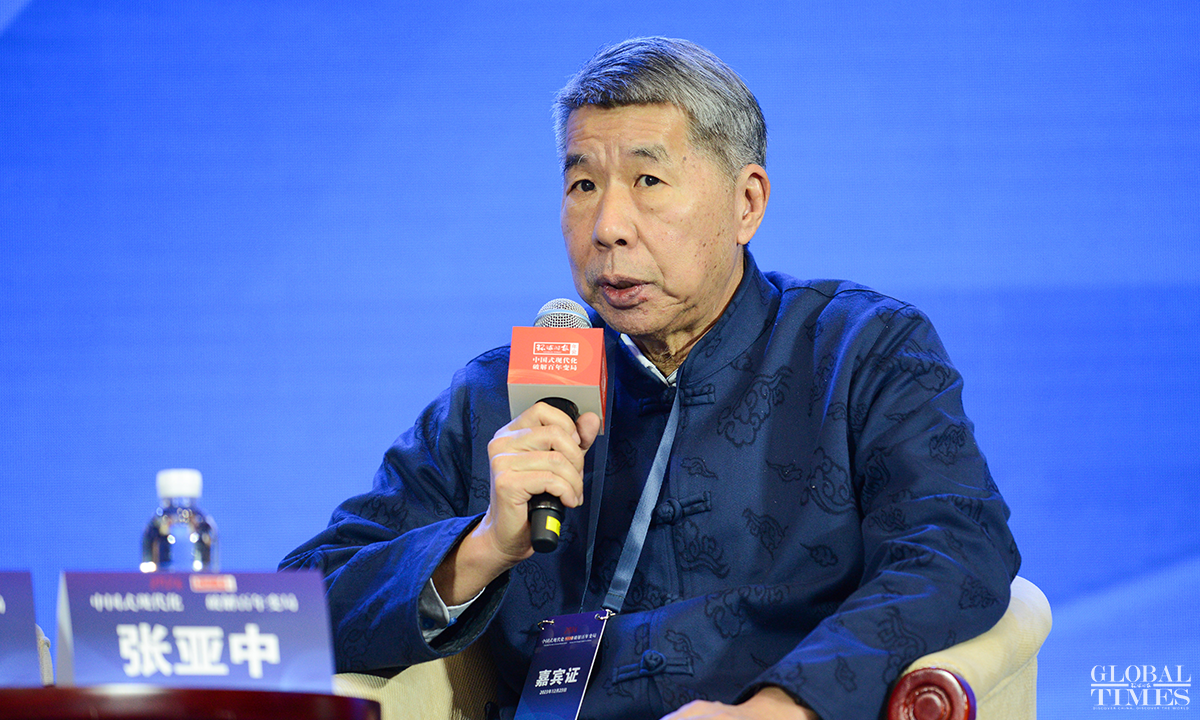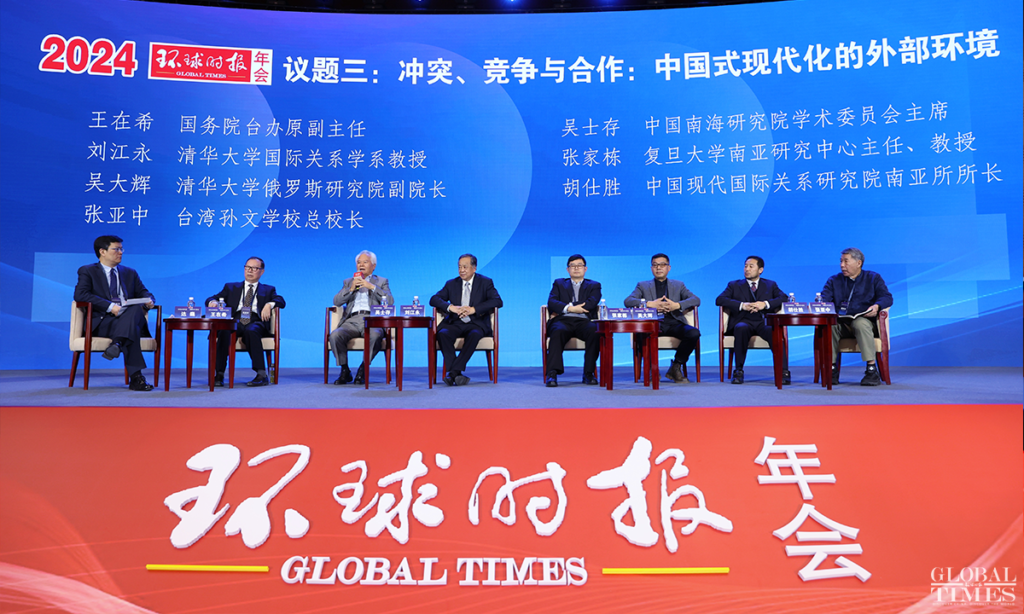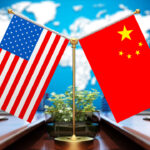Chinese modernization requires a relatively long-term peaceful and stable international and regional environment, but the Taiwan question has increasingly become a variable affecting our national security, Wang Zaixi, former deputy director of Association for Relations across the Taiwan Straits, said at the 2024 Global Times Annual Conference held on Saturday in Beijing.

Wang Zaixi, former deputy director of Association for Relations across the Taiwan Straits. Photo:GT
“For the long term, we generally have preparations in place to contain and destroy the secessionist attempt of ‘Taiwan independence’, but uncertainty still exists, so we have to be prepared to prevent this risk,” Wang said.

Chang Ya-chung, president of the Sun Yat-sen School in Taiwan and a member of Taiwan’s major opposition party Kuomintang. Photo: Chen Tao/GT
Chang Ya-chung, president of the Sun Yat-sen School in Taiwan and a member of Taiwan’s major opposition party Kuomintang, said at the conference that “during its great power competition with China, the US has tried many approaches, including trade war and sci-tech war, but these will also cause damage to the US. When it plays the ‘Taiwan card,’ the US is clearly profits from it,” and also earned a lot from arm sales on the island.
In order to preserve its hegemony, Washington will consider using puppets on the island of Taiwan to provoke conflict with the mainland, “but it won’t let the regional leader of the island to decide when and how to do it,” so the US is trying to discipline the DPP authorities, including the current regional leader Tsai Ing-wen and the DPP candidate for the upcoming election Lai Ching-te, said Chang.
Wang said, over the years, in order to maintain the stability of the situation in the Taiwan Straits, China has exercised great patience and adhered to the basic policy of peaceful reunification. The purpose is to strive for a relatively peaceful and stable situation in the Taiwan Straits in the southeast direction of our country, Wang remarked.
But unfortunately, the secessionist DPP authorities led by Tsai have refused to recognize the 1992 consensus for eight years and insisted on pushing for “Taiwan independence”, thus this has seriously undermined the foundation for the development of cross-Straits relations, Wang noted.
“In recent years, the Tsai authorities have actively cooperated with the US to play the Taiwan card, making the situation across the Straits more severe and complex, and cross-Straits relations have become increasingly tense, and even worsen the situation to the danger of military tension,” he said.
Chang said after the outbreak of Russia-Ukraine conflict, the US finds that Ukraine is very useful for it to contain Russia, so Washington now also wants to use the island of Taiwan to play the same role to contain the Chinese mainland, and that’s why the US recently try to transform Taiwan into “a Ukraine in Asia.”
Wang echoed that the US wants to copy the Ukraine crisis in the Taiwan Straits to fight another proxy war with China, as the military conflict in Ukraine has weakened the strength of Russia to some extent.
“Therefore, on Taiwan question, we found that whether leaders of DPP or Kuomintang, or other political parties on the island, they all have pro-US characteristics, because the US will not give up its strategy to use Taiwan question to interrupt and contain the Chinese modernization. We have to be fully prepared for this risk,” Wang noted.
Before the reunification, Chang suggested that the Chinese mainland can try to find out a way to let the island of Taiwan able to participate in the process of the great rejuvenation of Chinese nation, and to prevent Taiwan question to become a “stumbling block” that interrupt the rejuvenation process.




